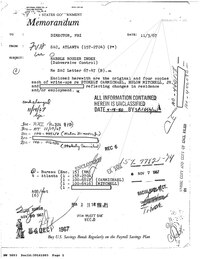
Photo from wikipedia
BACKGROUND & AIM The aim of this study was to establish the effectiveness of Body Cell Mass Index (BCMI) as a prognostic index of (mal)nutrition, inflammation and muscle mass status… Click to show full abstract
BACKGROUND & AIM The aim of this study was to establish the effectiveness of Body Cell Mass Index (BCMI) as a prognostic index of (mal)nutrition, inflammation and muscle mass status in the elderly. METHODS A cross-sectional observational study has been conducted on 114 elderly patients (80 women and 34 men), with mean age equal to 81.07 ± 6.18 years. We performed a multivariate regression model by Structural Equation Modelling (SEM) framework. We detected the effects over a Mini Nutritional Assessment (MNA) stratification, by performing a multi-group multivariate regression model (via SEM) in two MNA nutritional strata, less and bigger (or equal) than 17. RESULTS BCMI had a significant effect on albumin (β = +0.062, P = 0.001), adjusting for the other predictors of the model as Body Mass Index (BMI), age, sex, fat mass and cognitive condition. An analogous result is maintained in MNA<17 stratum. BMI has confirmed to be a solid prognostic factor for both free fat mass (FFM) (β = +0.480, P < 0.001) and Skeletal Muscle Index (SMI) (β = +0.265, P < 0.001), assessed by DXA. BCMI also returned suggestive evidences (0.05 < P < 0.10) for both the effect on FFM and on SMI in overall sample. CONCLUSIONS The main result of this study is that the BCMI, compared to BMI, proved to be significantly related to an important marker as albumin in geriatric population. Then, assessing the BCMI could be a valuable, inexpensive, easy to perform tool to investigate the inflammation status of elderly patients.
Journal Title: Clinical nutrition
Year Published: 2018
Link to full text (if available)
Share on Social Media: Sign Up to like & get
recommendations!